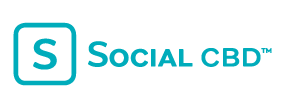In 2018, the FDA's approval of Epidiolex, a purified form of CBD, for treating rare seizure disorders, marked a pivotal moment in the medical community. This decision not only provided hope for patients but also opened the door to further exploration of CBD's potential health benefits.
Since then, CBD has rapidly gained popularity, captivating individuals seeking natural wellness solutions. From rubs and capsules to ointments and tinctures, CBD products have flooded the market, offering diverse options for holistic self-care. Even in my hometown's nostalgic video rental store, shelves are adorned with an array of CBD offerings, highlighting its widespread appeal.
Within just a year following the FDA's approval, the CBD industry burgeoned into a billion-dollar industry, captivating consumers nationwide. However, amidst this surge of enthusiasm, many individuals grapple with questions and uncertainties regarding CBD's usage, particularly in contexts where drug testing remains a concern, such as certain job environments or among veterans and first responders.
For those feeling apprehensive about embracing CBD, here are some reassuring insights to consider:
Understanding CBD vs. THC
CBD and THC are two distinct compounds found in cannabis, each with its own set of effects on the body and mind. While THC is known for its psychoactive properties, inducing the euphoric "high" associated with cannabis use, CBD offers a gentler alternative. Unlike THC, CBD does not interact with dopamine receptors in the brain, meaning it does not produce intoxicating effects. Instead, CBD interacts with various receptors to promote feelings of relaxation and calmness, offering a soothing experience without the mind-altering sensations.
Navigating Drug Testing
One of the most common concerns surrounding CBD usage is its potential impact on drug tests, especially in workplaces where cannabis remains prohibited. Reputable CBD brands like Social CBD prioritize transparency and quality assurance. Social CBD products undergo rigorous testing to ensure compliance with legal requirements, with THC levels below the legal threshold of 0.3%. While CBD itself typically does not trigger positive results on standard drug tests, individuals are encouraged to explore additional resources for guidance and reassurance.
Embracing the Benefits of CBD
In response to the question, "Does CBD Get You High?" the answer is a resounding no, accompanied by a sense of comfort and relief. While CBD does not induce the euphoric effects associated with THC, it offers a gentle and supportive experience, promoting relaxation and well-being. Whether you're seeking relief from daily stressors or looking to enhance your overall wellness, CBD offers a natural and holistic approach to self-care.
It's important to note that some individuals may experience a small psychoactive effect from full-spectrum CBD products due to the inclusion of small amounts of THC, though they are well within the legal limit of 0.3%. This effect is typically minimal and varies from person to person.
In conclusion, the rise of CBD represents a transformative journey towards holistic wellness, empowering individuals to take control of their health and happiness. As you embark on your CBD journey, remember that you're not alone. With informed decision-making and responsible usage, you can embrace the potential benefits of CBD with confidence, knowing that you're taking a step towards a brighter, more vibrant future.













